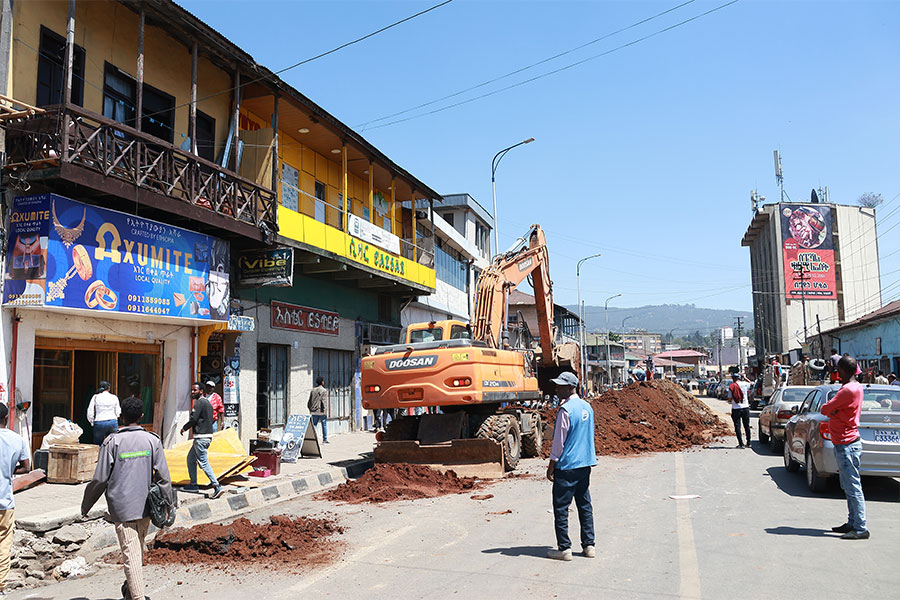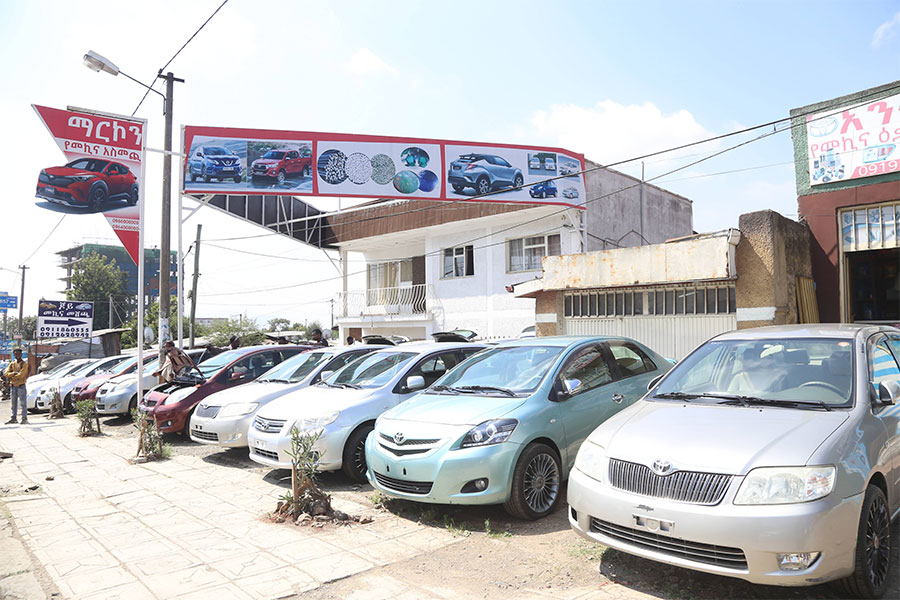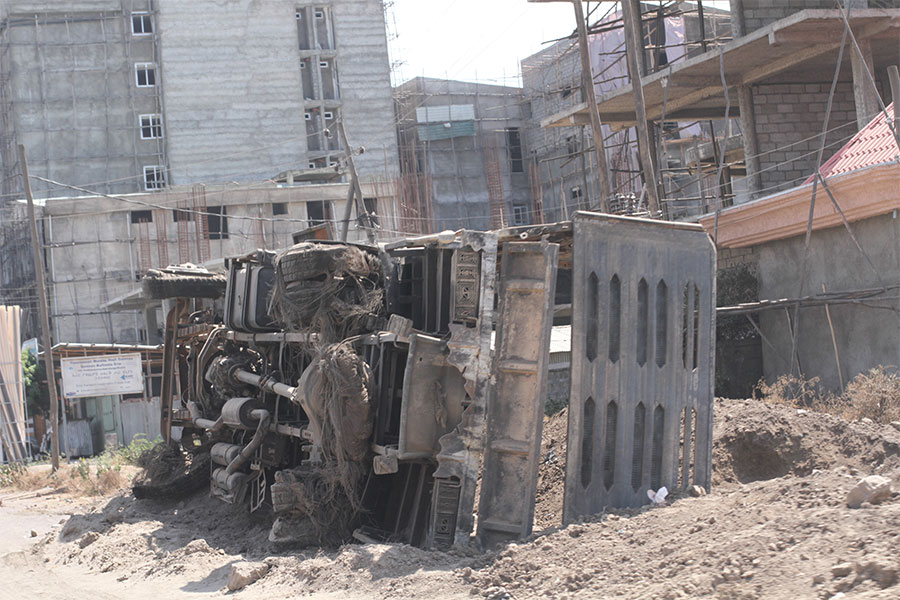
Verbatim | May 18,2024
Steel manufacturers will no longer buy scrap metals through auctions but depend on a federal agency which will supply the industry at predetermined prices.
The Public Procurement & Property Disposal Service was granted the mandate last year to identify used vehicles at public offices to be disposed of as scrap metal. It is part of the administration's efforts to encourage import substitution as the import bill edges closer to 18 billion dollars, five times higher than export revenues.
Vehicles that have sustained severe damage; cars that have served longer than 40 years; and right-hand drive vehicles were designated for disposal as scrap through auction. Before the initiative, old government vehicles were sold to buyers for further use through auction or abandoned altogether. Last year, the Service assessed that at least 10,000 vehicles under the possession of government agencies and public universities had been mismanaged and kept around with no use.
The new scheme will be applied to vehicles from 86 institutions asking for vehicle disposal since 2015. A fifth of them is located outside of Addis Abeba.
The Metals Industry Development Institute is tasked to facilitate the supply of scrap metal based on the factories' production capacity.
“We're conducting an assessment to determine demand,” said Guta Legesse (PhD), head of the Institute.
The assessment will be completed next week, disclosed Guta. The procurement service has made 2,600tns of scrap metal available to be allocated after the Institute finalises its task.
Alarmed by severe raw material shortages, the authorities have been adjusting disposal methods and price-setting mechanisms over the past year. Highly dependent on imports, metal industries have been struggling to access foreign currency to import crucial inputs such as billet. Steel manufacturers need 12 million tonnes of billet each year. However, laying hands on the more than 1.3 billion dollars required to cover the annual demand has been challenging.
The shortages have pushed manufacturing industries' average capacity utilisation rate below 30pc. In recent years, more than two dozen factories have been forced to close their doors.
Close to 140 medium- and large-scale factories produce iron and steel products. Another 241 small firms are in the metals and engineering sector. Combined, these companies employ a total of 126,000 people.
Incorporated in 2015, Steely RMI buys scrap metal from the local market. The company's plant lies on a 123,000sqm plot in Bishoftu (45km southeast of the capital) and has an annual production capacity of half a million tonnes. Its primary clients are contractors and real estate developers.
Steel price is set at 29 Br a kilo, while cast iron is traded at 21 Br. It is less than half the current average rate.
Employing a workforce of 2,000, Steely has been struggling with input shortages. It operates at 15pc of its capacity.
"We've been lobbying for the auction mechanism to be terminated,” Teferra Lema, chief executive officer (CEO) of the company, told Fortune.
This year, the procurement service supplied 336,000tns of scrap metal to manufacturers. However, it was a drop in the bucket, hardly enough to satisfy a quarter of the demand from factories. At its current production level, Steely RMI would require 15,000tns of scrap metal annually. It is unlikely to meet the demand.
Scrap metal is primarily used for the manufacture of reinforcement bars. However, Solomon Mulugeta, head of the Ethiopian Association of Basic Metals & Engineering Industries, says it can be used as a raw material for half of the product types manufactured domestically.
Experts caution about the raw material sourced through the scrap metal scheme. The quality of scrap materials is determined by their composition, according to Getasew Ashagre (PhD), assistant professor of mechanical engineering at Addis Abeba University.
“If the scrap is not sorted and verified properly, it can have a downside on profitability," said Getasew.
Nonetheless, not all metal industries are eligible to receive scrap metal through the scheme. Only those with metal melting furnaces installed in their plants have access, which amounts to a third of the 70 manufacturers under the Association.
PUBLISHED ON
Jul 02,2022 [ VOL
23 , NO
1157]

In-Picture | Mar 16,2024

Fortune News | Apr 22,2022

Fortune News | Aug 24,2019

Radar | Jan 16,2021

Radar | Aug 13,2022

Dec 22 , 2024 . By TIZITA SHEWAFERAW
Charged with transforming colossal state-owned enterprises into modern and competitiv...

Aug 18 , 2024 . By AKSAH ITALO
Although predictable Yonas Zerihun's job in the ride-hailing service is not immune to...

Jul 28 , 2024 . By TIZITA SHEWAFERAW
Unhabitual, perhaps too many, Samuel Gebreyohannes, 38, used to occasionally enjoy a couple of beers at breakfast. However, he recently swit...

Jul 13 , 2024 . By AKSAH ITALO
Investors who rely on tractors, trucks, and field vehicles for commuting, transporting commodities, and f...

Oct 18 , 2025
The political establishment, notably the ruling party and its top brass, has become p...

Oct 11 , 2025
Ladislas Farago, a roving Associated Press (AP) correspondent, arrived in Ethiopia in...

Oct 4 , 2025
Eyob Tekalegn (PhD) had been in the Governor's chair for only weeks when, on Septembe...

Sep 27 , 2025
Four years into an experiment with “shock therapy” in education, the national moo...